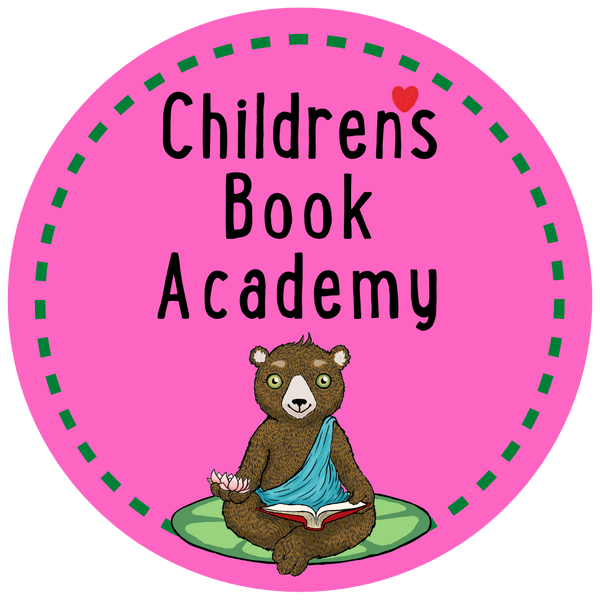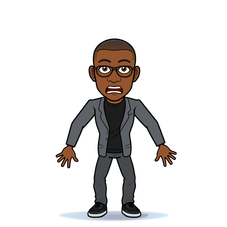by Bryan Patrick Avery
Once you’ve written and published a book, you will eventually be asked to present your writing in some way, shape, or form. This can be a fun way to connect with your readers, interact with teachers and librarians, and network with other authors. It can also be terrifying.
Once you’ve written and published a book, you will eventually be asked to present your writing in some way, shape, or form. This can be a fun way to connect with your readers, interact with teachers and librarians, and network with other authors. It can also be terrifying.
#1 –Introducing Yourself
Depending on where you’re presenting, you might be introduced by your host at the start of your presentation. Whether someone introduces your or not, be prepared to start your talk with a brief introduction of your own. This simple introduction should include the following items:
For example, my introduction for an event honoring the Tuskegee Airmen might go something like this:
“Hello, my name is Bryan Patrick Avery. I write picture books, chapter books, and middle grade novels. Some of my books include, OFF BASE, EARL LEARNS A LESSON, and the MR. GRIZLEY’S CLASS series. Today, I’m excited to talk to you about my picture book, THE FREEMAN FIELD PHOTOGRAPH.”
Depending on where you’re presenting, you might be introduced by your host at the start of your presentation. Whether someone introduces your or not, be prepared to start your talk with a brief introduction of your own. This simple introduction should include the following items:
- Your name
- The types of writing (or illustrating) that you do
- Mention your book(s)
- State what you’re going to talk about today
For example, my introduction for an event honoring the Tuskegee Airmen might go something like this:
“Hello, my name is Bryan Patrick Avery. I write picture books, chapter books, and middle grade novels. Some of my books include, OFF BASE, EARL LEARNS A LESSON, and the MR. GRIZLEY’S CLASS series. Today, I’m excited to talk to you about my picture book, THE FREEMAN FIELD PHOTOGRAPH.”
#2 –Introducing Your Book
Immediately after that, you can jump into talking about your book. You’ll want to start with these three things:
Here’s an example.
“THE FREEMAN FIELD PHOTOGRAPH was illustrated by Jerome White. It is the story of young girl whose father, a Tuskegee Airman, is arrested during the 1945 Freeman Field Mutiny. I’m honored to be able to talk about this book on the day of dedication of the Tuskegee Airmen Memorial Dedication at Freeman Field.”
Immediately after that, you can jump into talking about your book. You’ll want to start with these three things:
- The title of the book
- A short (1 sentence or so) summary of what the book is about
- Why you’re talking about this particular book today
Here’s an example.
“THE FREEMAN FIELD PHOTOGRAPH was illustrated by Jerome White. It is the story of young girl whose father, a Tuskegee Airman, is arrested during the 1945 Freeman Field Mutiny. I’m honored to be able to talk about this book on the day of dedication of the Tuskegee Airmen Memorial Dedication at Freeman Field.”
#3 – Honoring Your Audience
Lastly, remember to honor your audience. This can mean many things but, for starters, focus on these two:
This last point is critical. If you are doing a book launch event, make sure to show your gratitude to your audience for coming out to support you. If you’re presenting at a larger event with a theme or objective, make sure to tie your remarks back to that theme.
One last word on presenting. One of the most important keys to a good presentation is your comfort. Your style is yours and yours alone. Don’t fall into the trap of trying to look or sound like someone else. If you love PowerPoint, use it. If you’d rather stand up with just your book in your hands do it. Ultimately, the best presentations are the ones that come from the heart.
Well, that’s all for this month. Happy writing presenting and have a magical month.
Lastly, remember to honor your audience. This can mean many things but, for starters, focus on these two:
- Use language appropriate to your audience
- Remember to tie your presentation in the reason your audience is there
This last point is critical. If you are doing a book launch event, make sure to show your gratitude to your audience for coming out to support you. If you’re presenting at a larger event with a theme or objective, make sure to tie your remarks back to that theme.
One last word on presenting. One of the most important keys to a good presentation is your comfort. Your style is yours and yours alone. Don’t fall into the trap of trying to look or sound like someone else. If you love PowerPoint, use it. If you’d rather stand up with just your book in your hands do it. Ultimately, the best presentations are the ones that come from the heart.
Well, that’s all for this month. Happy writing presenting and have a magical month.
Bryan Patrick Avery is an award-winning poet and author of more than a dozen books for children including the middle grade collective biography, BLACK MEN IN SCIENCE, illustrated by Nikita Leanne and THE FREEMAN FIELD PHOTOGRAPH, illustrated by Jerome White. Bryan is also the author of the middle-grade story, “The Magic Day Mystery”, which appears in SUPER PUZZLETASTIC MYSTERIES, the Jake Maddox JV Mysteries OFF BASE and SOCCER SUSPICIONS, the early chapter book series, MR. GRIZLEY’S CLASS, illustrated by Arief Putra, and the picture books EARL LEARNS A LESSON and MAX’S MAGIC CHANGE, both illustrated by Roman Diaz. He is the 2021 recipient of the SCBWI Work in Progress Award for his chapter book mystery THE ROBOT IN THE LIBRARY.
Bryan serves on the Board of Directors of the Northern California Chapter of Mystery Writers of America and is an Amplify Black Stories Fellow, a joint program presented by the Brown Bookshelf and the Highlights Foundation. Bryan lives in Northern California with his family.
Bryan serves on the Board of Directors of the Northern California Chapter of Mystery Writers of America and is an Amplify Black Stories Fellow, a joint program presented by the Brown Bookshelf and the Highlights Foundation. Bryan lives in Northern California with his family.










